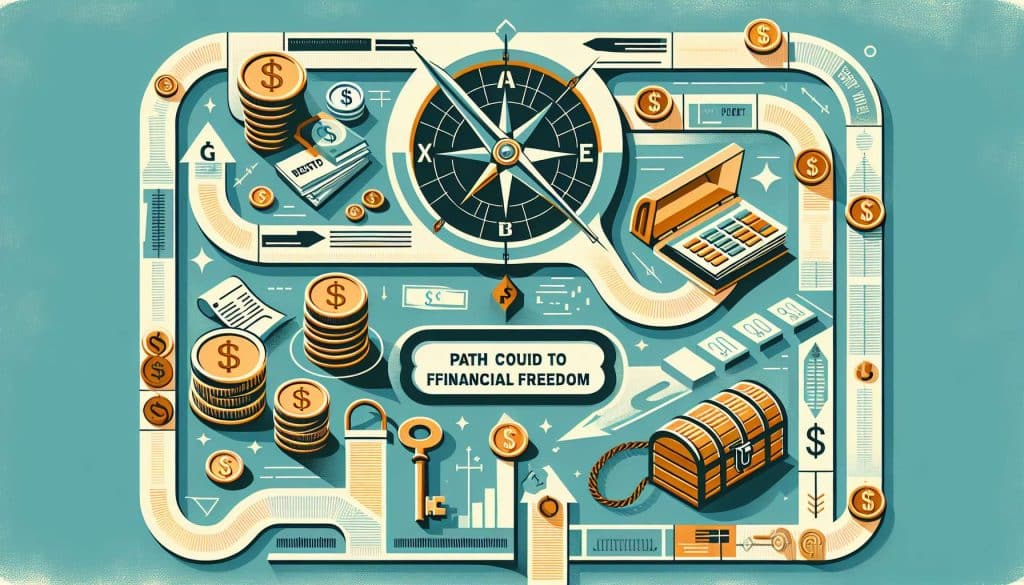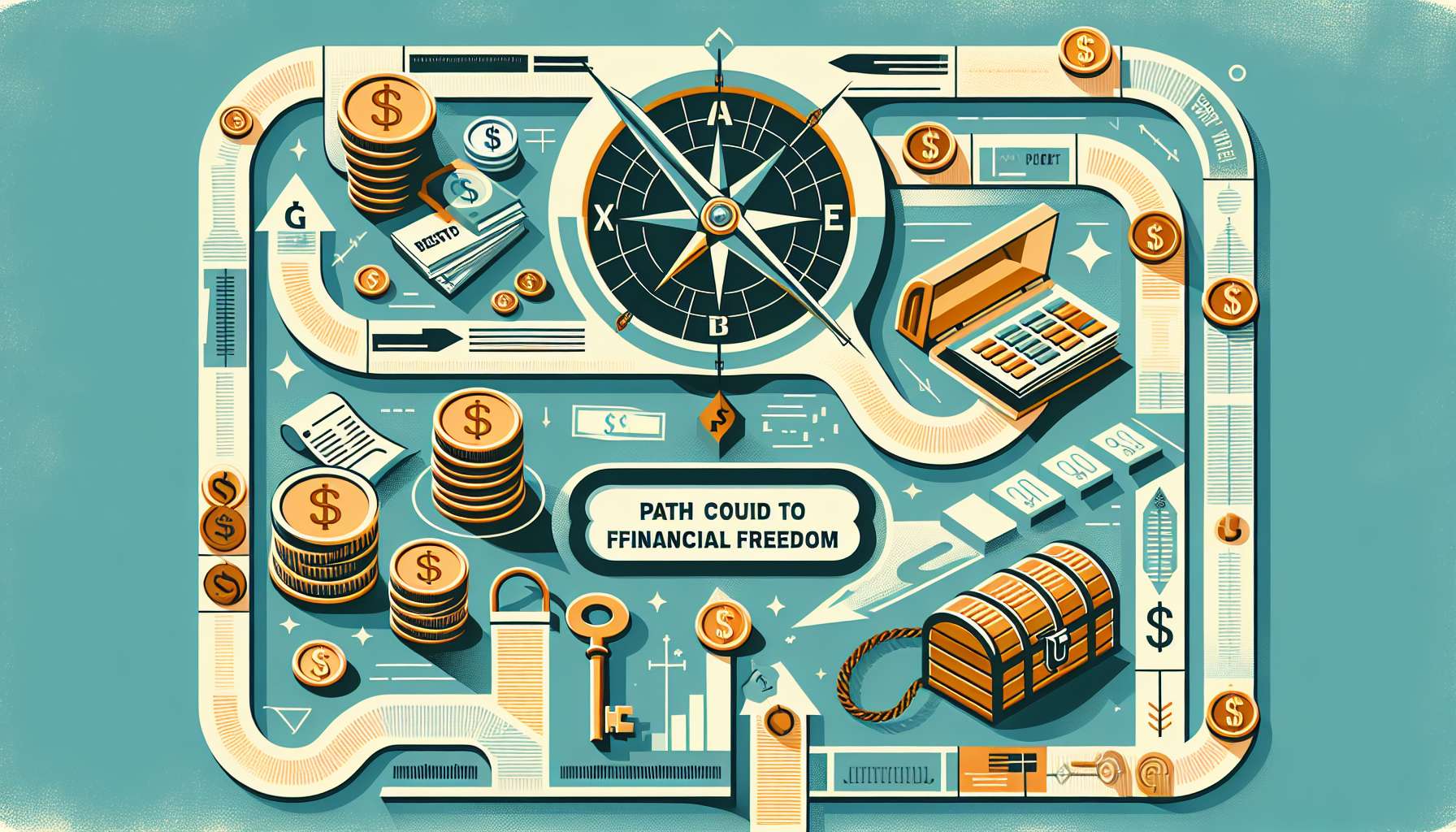Personal Budgeting Guide: Your Pathway to Financial Freedom

Anúncios

Mastering Personal Budgeting: The Key to Financial Independence
In a world that never stops moving, financial stability stands as a pillar of security that many strive to achieve. Personal budgeting has evolved from being a mere financial tool to a necessity for those wishing to manage their finances effectively. Whether you’re juggling expenses on a limited income or fine-tuning a robust financial strategy, mastering budgeting can unlock the pathway to financial independence. This comprehensive guide will illuminate the crucial steps in personal budgeting, offering practical advice and warning against common missteps.
Understanding your financial situation starts with personal budgeting, which necessitates a clear plan for your expenditures. By adhering to a well-structured budget, you ensure that you’ll have adequate funds for necessities and personal priorities. Moreover, budgeting provides an effective mechanism to ward off or eliminate existing debt. This practice isn’t just about surviving financially but thriving and planning for future aspirations. A budget acts like a map, guiding you on a pathway to financial success and stability.
The significance of personal budgeting extends beyond simple financial planning. A well-maintained budget grants you financial clarity, showing where your money goes each month and helping identify areas where savings are possible. Moreover, budgeting significantly reduces financial stress by replacing uncertainty with structured knowledge of your financial commitments. Aspirations, big or small—be it purchasing a home or saving for leisure—become achievable with a budget. Finally, by living within your means, upcoming debts are avoided, securing a worry-free financial future.
Anúncios
Creating an Effective Personal Budget
The first step in creating your personal budget is evaluating your income. Compile a total estimate of your monthly earnings, accounting for salaries, pensions, or other revenue streams. Remember, the focus should be on net income—the amount you take home after taxes. With this figure in place, you can confidently determine your spending boundaries. This understanding forms the foundation of a successful budgeting process and ensures that your financial plans are realistic and grounded.
Once your income is ascertained, proceed by listing every possible expense you incur. Breaking this down into fixed and variable categories can be extremely beneficial. Fixed expenses are predictable, occurring routinely, such as rent, insurance, and utilities. On the other hand, variable expenses fluctuate, with examples including groceries, hobbies, and travel-related costs. This segmentation is invaluable for identifying where cutbacks can be intuitively made across non-essential spends.
Categorizing your expenses is a critical exercise in understanding your spending habits. Common divisions include housing, transport, groceries, savings, and entertainment, among others. This compartmentalization sheds light on where you might be overspending and empowers you to realign resources more effectively. Once spending habits are clearly categorized, you can discern your financial strengths and weaknesses, setting you on a path to financial improvement.
Anúncios
Setting spending limits forms the essence of your budget. With each category clearly defined, assign realistic spending caps that don’t exceed your net income. Should your expenses surpass earnings, refine your budget in discretionary categories. This approach maintains fiscal discipline and prepares you to prioritize essential spending, aligning your financial activities with your goals. This practice also builds restraint, crucial for sticking to your financial plans.
Budgeting is dynamic, never static. Monitor spending regularly to adhere to your budget’s confines, and adjust where necessary. Life’s unpredictability calls for a responsive budgeting process that can accommodate changes, ensuring relevance. As expenses change or new income streams are introduced, your budget should adapt accordingly. This adaptability keeps your financial planning relevant and accurate, backing each part of your financial journey.
Characteristics of Effective Budgeting
- Real-time monitoring allows for immediate adjustments.
- Goal-oriented, with clear financial targets.
- Flexible to accommodate life’s unpredictabilities.
- Inclusive of all expenses, leaving no details unaccounted.
- Regular review cycles for continued relevance.
Benefits of Personal Budgeting
The implementation of a structured budget makes numerous benefits accessible. Perhaps most notably, financial clarity leads the list, allowing individuals to fully understand and manage their monetary situations. This clarity leads to improved financial decisions and ultimately, secure financial well-being. Furthermore, budgeting significantly reduces stress associated with financial uncertainty, providing peace of mind. Finally, budgeting helps set attainable financial goals, allowing for steady financial growth.
Reliable financial management through budgeting helps eliminate debt, thus freeing resources previously tied to interest payments. This debt freedom enables reinvestment into saving or personal development. A comprehensive budget fosters better financial habits, ensuring discretionary spending is curtailed and focused on priority areas. Consequently, resources are reallocated towards necessary investments and savings, reinforcing financial security.
Budgeting also allows for emergency planning by advocating for an emergency fund. This reserve shields against unexpected expenses, promoting financial resilience. The security of knowing you’re prepared for unforeseen events enhances overall life quality, making budgeting indispensable. Such preparedness leaves room for risk-taking and personal growth, unhindered by financial insecurity. Ultimately, the consistent practice of budgeting translates into financial empowerment and freedom.
The confidence instilled by successful budgeting extends into broader life areas. Knowing your finances are in order reduces stress, freeing up mental and emotional resources. Budgeting also adds to financial literacy, cultivating an informed perspective on monetary decisions. A financially literate individual is equipped to capitalize on opportunities as they arise, ready to seize life’s offerings. Thus, budgeting fosters not only security but intellectual growth.
- In-depth financial understanding promotes better decision-making.
- Reduced anxiety due to planned, predictable expenditures.
- The foundation for an emergency fund enhances stability.
- Frees capital by eliminating debt through focused repayment.
- Promotes disciplined financial behavior, reinforcing savings.





